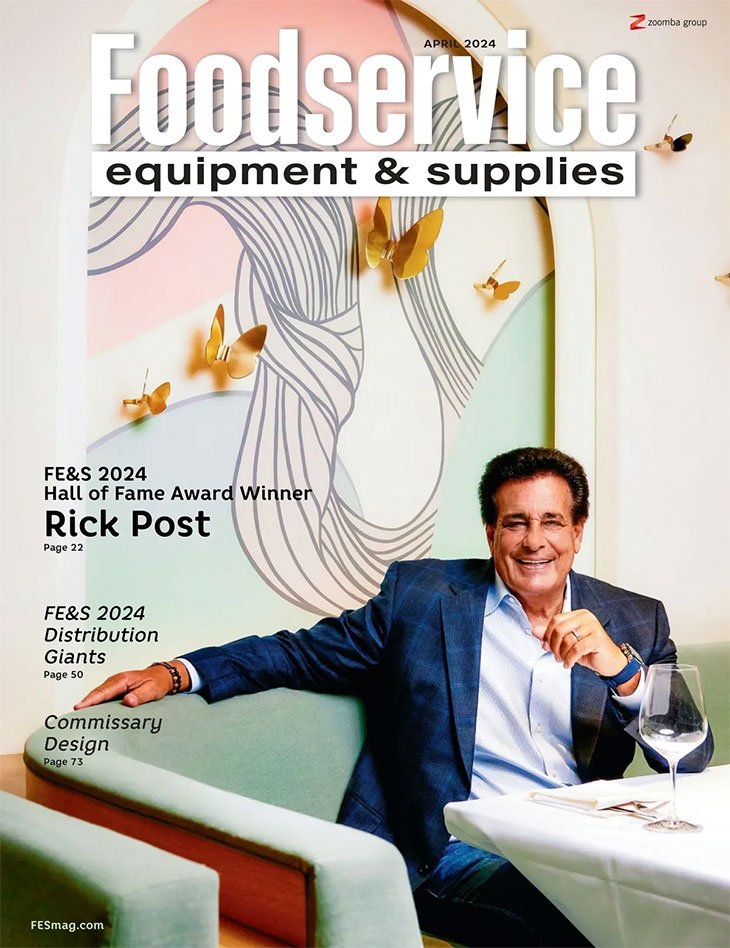Proper servicing of foodservice equipment is an often-overlooked aspect of restaurant fire prevention. In this article, a veteran service agent explores some key cooking equipment-related areas foodservice operators should address to reduce the likelihood of a fire.
Properly maintaining foodservice equipment offers plenty of well-known benefits, from limiting the likelihood of major breakdowns to limiting energy bills by ensuring that units operate at peak efficiency. One often overlooked but even more important benefit that can save lives is fire prevention.
Foodservice operators who regularly service their cooking equipment can avoid many fire hazards, said Gary Petitti, president of Gary's East Coast Service, a Connecticut-based foodservice equipment service agency. Not surprisingly, most of the biggest threats come from hot side equipment, he added.
- Fryers: A leak in a fryer's grease tank presents one of the biggest fire risks in a professional kitchen. That's because these leaks usually drip directly into the fryer's burner chamber. Signs of these leaks include smoke and burning smells coming from the fryer as well as grease deposits in the burner chamber, which can be found when changing the oil. According to Petitti, this problem is usually caused by simple wear-and-tear and isn't worth fixing. Though expensive, the best solution is to replace the unit entirely.
- Flattop griddles: Over the years, constant scraping with spatulas and cleaning tools can cause pinholes and hairline fractures to form on a flattop's surface. If these appear in the wrong place, the cracks and holes can send grease directly onto a burner box, which presents a clear fire hazard. Replacing the whole unit may be necessary in some situations, but not in all of them, said Petitti. A hole or crack can be sealed with a watertight tig weld, or the top of the griddle itself can be replaced.
- Stoves: A stove's burner knobs represent one of its biggest fire hazards. Over time, the valves controlled by these knobs can get clogged with dust, which is flammable, and/or dry out. A dry valve, even, when closed, may not completely stop the flow of gas, resulting in a slow but very dangerous gas leak. Operators should have service agents replace these valves or re-grease them during scheduled service visits to prevent leaks from occurring.
- Convection ovens: Since convection ovens blow heated air to cook foods, the fans motors and vents required by these ovens can be the source of a fire. All should be wiped down and cleaned regularly.
Broken thermostats present another major risk when it comes to cooking equipment, Petitti said. While some pieces, like most fryers, have safeties that shut the unit down if it gets too hot, others don't have such a fail-safe. "I just had a customer with a bad thermostat on the oven and it was going at nearly 1,000 degrees F," he said. "It did really bad damage to everything in the oven but it could have caught something on fire. Say they put something in a pan with oil in there. That could ignite."
To ensure the safety of all involved, foodservice operators should work with trained, professional service agents to replace a broken thermostat and execute most of the fire-prevention steps mentioned above, Petitti said.
In addition, operators should contract with specialists to regularly clean hood systems in order to prevent grease buildups. Operators should also make sure their fire suppression system is in good working order and that it matches their cooking layout, said Petitti. Most municipalities, not to mention insurance policies, require all pieces of hot side equipment that use an open flame have a dedicated sprinkler head or suppression nozzle directly above them. If operators shift their kitchen layouts, they may be out of code and should take steps to rectify the problem.
Not every fire-prevention duty falls to outside companies, of course. Operators should keep an eye out for old or frayed electrical cords and can also monitor the state of hoses that feed gas to cooking equipment.
What's the single most important thing operators can do to prevent a fire? It's simple, said Petitti: Keep your equipment and your kitchen clean. Grease deposits and bits of food landing in the wrong place can easily cause a fire.
"For operators, cleanliness is the biggest thing," he said. "Don't attempt to change other things because that could impact calibration. Just keep your equipment clean and you can prevent bigger problems down the road."




